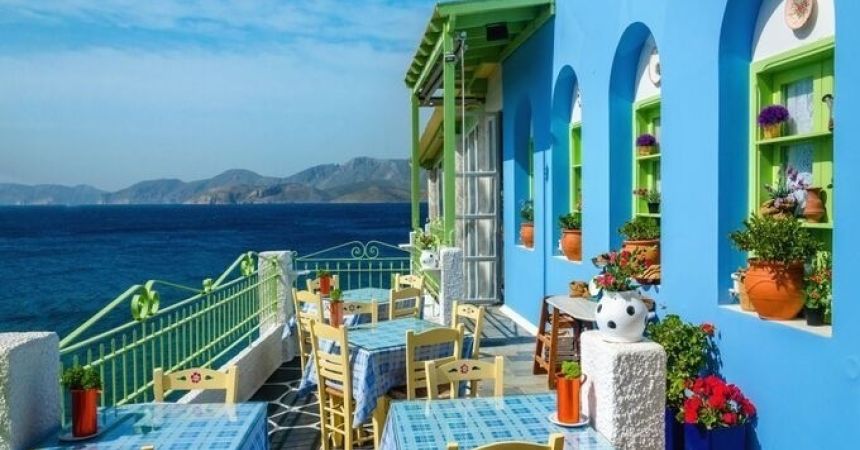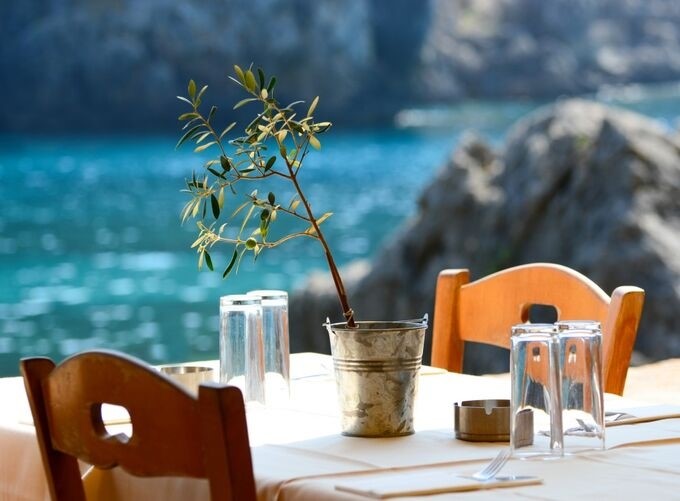
Corfu Jewel of the Ionian Sea Holiday Guide
Corfu is one of Greece’s most enchanting islands, celebrated for its emerald landscapes, turquoise waters, and rich cultural heritage. Located in the Ionian Sea, near Greece’s northwestern coast, Corfu blends Venetian elegance with traditional Greek charm. Whether you are planning relaxed sightseeing, an adventurous travel experience, or a romantic honeymoon vacation, Corfu offers a perfect balance of history, nature, and luxury.
From UNESCO-listed Old Town streets to dramatic cliffs and golden beaches, the island appeals to couples, families, and solo travelers alike. It is also a favorite destination within Greece holiday packages and Mediterranean island tours, thanks to its accessibility and diverse attractions.
Where Is Corfu and Why Is It So Special?
Corfu lies just off the coast of mainland Greece, close to Albania, making it a cultural crossroads of East and West. Unlike many other Greek islands, Corfu features lush green hills, olive groves, and forests, thanks to higher rainfall.
The island’s architecture reflects centuries of Venetian, French, and British rule. Elegant arcades, pastel buildings, and historic fortresses give Corfu a distinctive atmosphere that feels both Greek and European. This unique blend makes it ideal for travelers looking for more than just beaches during their vacation in Greece.
Top Sightseeing Attractions in Corfu
Corfu is packed with fascinating landmarks and scenic viewpoints, making it a paradise for sightseeing lovers.
Corfu Old Town, a UNESCO World Heritage Site, is the heart of the island. Wander through narrow alleys known as kantounia, visit the Old Fortress and New Fortress, and enjoy coffee at the famous Liston Promenade.
Paleokastritsa is another highlight, famous for its dramatic cliffs, hidden coves, and crystal-clear waters. It is perfect for photography, swimming, and boat trips.
Achilleion Palace, built for Empress Elisabeth of Austria, offers stunning statues and panoramic views over the Ionian Sea. Meanwhile, Cape Drastis in the north provides breathtaking sunset scenery and unique rock formations.
These attractions are often included in Corfu tours and sightseeing itineraries, making planning easy for first-time visitors.
Beaches That Define the Ionian Paradise
Corfu’s beaches are among the most diverse in Greece. From long sandy stretches to secluded pebble bays, there is something for every traveler.
Glyfada Beach is popular for its soft sand and vibrant atmosphere, ideal for families and group travel. Porto Timoni, a double beach near Afionas village, is perfect for adventurous hikers and photographers. Issos Beach, with its sand dunes, feels almost tropical.
For couples on a honeymoon vacation, quieter beaches like Rovinia and Myrtiotissa offer privacy and romance. Many Greece holiday packages include beach time in Corfu, combining relaxation with cultural exploration.
Corfu Cuisine: A Taste of Island Tradition
Corfiot cuisine is distinct from other Greek islands, influenced heavily by Venetian flavors. Local specialties include pastitsada (slow-cooked rooster or beef in rich tomato sauce), sofrito (veal in white wine sauce), and bourdeto (spicy fish stew).
Fresh seafood, olive oil, local wines, and kumquat-based desserts are staples of the island. Food tours are increasingly popular and are often featured in premium travel packages and culinary tours around Corfu.
Best Time to Visit Corfu for Your Holiday
The best time to visit Corfu is from May to October. Spring offers pleasant weather, blooming landscapes, and fewer crowds, ideal for sightseeing and cultural travel.
Summer (June to August) is perfect for beach lovers, boat tours, and vibrant nightlife, although it is the busiest period. September and early October provide warm seas, mild temperatures, and excellent value for holiday packages.
Winter is quieter and greener, suitable for travelers interested in local life and history rather than beach activities.
Corfu for Honeymoon and Luxury Vacations
Corfu is a rising star for romantic travel and honeymoon vacations. Luxury resorts, private villas, sunset cruises, and fine-dining restaurants create unforgettable experiences for couples.
Many specialized honeymoon packages include private airport transfers, spa treatments, candlelight dinners, and exclusive boat tours around the island. The combination of natural beauty and refined hospitality makes Corfu one of Greece’s most romantic island destinations.
Planning Your Corfu Travel Experience
Corfu is easily accessible via direct international flights in summer and year-round connections through Athens. Ferries from mainland Greece and Italy also make it convenient for multi-country Greece travel itineraries.
Whether you choose independent travel or organized tours, Corfu fits seamlessly into broader Greece travel packages, island-hopping vacations in Greece, or Ionian Sea cruises.
With its welcoming locals, safe environment, and wide range of accommodations, Corfu is suitable for luxury travelers, budget explorers, families, and honeymooners alike.

Frequently Asked Questions (FAQ)
- Is Corfu good for first-time visitors to Greece?
Yes, Corfu is ideal for first-time travelers, offering easy transport, rich sightseeing, beautiful beaches, organized tours, and well-developed travel infrastructure across the island. - How many days are enough to explore Corfu?
Four to six days allow visitors to enjoy major sightseeing spots, beaches, local cuisine, cultural tours, and relaxed holiday experiences without rushing. - Is Corfu suitable for a honeymoon vacation?
Absolutely, Corfu offers romantic resorts, private beaches, sunset cruises, luxury packages, and peaceful villages, making it perfect for couples seeking a memorable honeymoon vacation. - What type of tours are popular in Corfu?
Popular options include island sightseeing tours, boat trips, food tours, cultural excursions, beach-hopping adventures, and private luxury travel packages for couples and families. - Can Corfu be included in Greece travel packages?
Yes, Corfu is frequently included in Greece travel packages, island-hopping tours, and customized holiday itineraries combined with Athens or other Greek islands.



